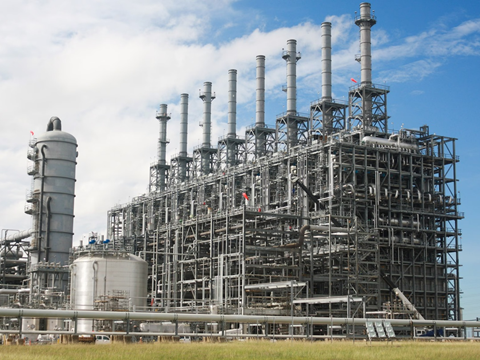
Dow and Freepoint Eco-Systems have announced an agreement for an estimated 65,000 metric tonnes per year of ‘certified-circular, plastic waste-derived’ pyrolysis oil to produce new, virgin-grade equivalent plastics in Dow’s U.S. Gulf Coast operations.
The two companies are building a recycling system which aims to convert plastic waste into valuable materials and foster a circular economy for plastics in North America.
The facility is anticipated to process end-of-life plastic waste in the region, diverting it from landfills or incineration by converting the waste into recycled pyrolysis oil. Dow says that, for every ton of plastic waste, approximately 70% is expected to be converted to pyrolysis oil and sold exclusively to Dow for phase one of the facility.
Utilizing the circular liquid supply, Dow will produce new products with virgin-grade equivalent plastics, replacing those made from conventional feedstock. The resulting circular products will be suitable for use in various applications including food-grade packaging (such as pet food, confectionery, and snacks) as well as medical and pharmaceutical packaging, while maintaining existing product performance and reducing reliance on fossil feedstocks.
Once fully operational, the new facility will reportedly have a total nameplate capacity to recycle approximately 180,000 tons of plastic waste per year. Phase one, expected to start in 2026, will initially process 90,000 tons of waste, yielding 65,000 metric tons of pyrolysis oil sold exclusively to Dow. The facility will be located in Eloy, Arizona, on 40 acres of undeveloped land.
In related news, BlueAlp and Recupero Etico Sostenibile (RES) have signed an agreement to establish Italy’s first industrial-scale advanced recycling facility, expected to process and convert 20kt of mixed plastic waste annually. BlueAlp’s patented pyrolysis technology will be used to process waste that is incompatible with mechanical recycling, such as polyolefin film fractions.
Earlier this month, Hündgen Entsorgungs announced it has entered a supply agreement to source, prepare, and supply Carbios’ industrial-scale bio-recycling plant with 15kt of post-consumer PET flakes every year, from late 2026. Once it is fully operational, Carbios’ plant is expected to reach an annual capacity of 50kt.
If you liked this story, you might also enjoy:
How are the top brands progressing on packaging sustainability?
The ultimate guide to global plastic sustainability regulation













No comments yet